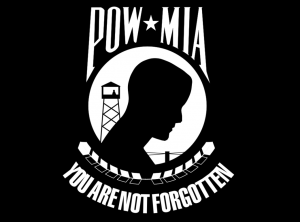California Declares POW/MIA Recognition Day
The POW/MIA flag is being flown at the California capitol and many other government buildings across the state to honor prisoners of war and those who went unaccounted for while fighting for the country.
Governor Gavin Newsom has signed a state proclamation declaring today as “POW/MIA Recognition Day” in the state of California.
You can read the proclamation below:
They went off to war. They never came home. Today, more than 81,000
Americans who fought in World War II, the Korean, Vietnam and Gulf Wars,
and all conflicts in between still remain unaccounted for, and their families
have never stopped seeking closure.
Some were prisoners of war (POWs) who were never returned by their
captors. Others are missing in action (MIA), a term that applies to any
member of the Armed Forces who “becomes involuntarily absent as a result
of a hostile action” and “whose status is unaccounted for,” as defined
under the Missing Persons Act.
The Defense POW/MIA Accounting Agency continues to work
diligently, closing 95 cases thus far in 2020, and 144 since POW/MIA Day in
2019. Still, the numbers of American POWs and MIAs unaccounted for are
staggering: 72,582 from World War II; 7,578 from the Korean War; 1,586 from
the Vietnam War; 126 from the Cold War; and six from conflicts since
1991. Three-quarters of the losses are from conflicts in Asia-Pacific, with
41,000 presumed lost at sea – 6,397 are Californians.
In 1979, the families of missing Vietnam POWs and MIAs pressured Congress
to increase the efforts to find answers, resulting in POW/MIA Recognition
Day observed the third Friday of every September. This is a day for all
Americans to pay tribute to those who serve and to account for those who
have not returned.
On this day, we display the POW/MIA flag at our Capitol and government
buildings throughout California, businesses and homes to honor those brave
souls for their service and sacrifice, and rededicate our commitment to their
families by reassuring them that “You Are Not Forgotten.”

